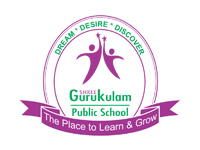Education in the early years of a child cannot be ignored. This is a critical stage of development when the child’s brain is growing and making millions of connections. We endeavour to provide a rich Montessori environment as a support system to fulfill the educational needs of each child.
Our emphasis is mostly on learning through the senses in order to encourage brain development of the children. The activities which they practice tend to encourage independent learning, self-awareness and self-confidence. We also assist each child to develop a fine sense of social responsibility and eco-friendly living.
“…………. children must be free to choose their own occupations just as they must never be interrupted in their spontaneous activities. No work may be imposed – no threats, no rewards, no punishments. The teacher must be quiet and passive, waiting patiently and almost withdrawing herself from the scene, so as to efface her own personality and thus allow plenty of room for the child’s spirit to expand” (Maria Montessori, The Absorbent Mind, p.240).
We try to inspire children to discover a love of learning in creative and joyful atmosphere. The learning style of our children is auditory, visual or experiential, determined by the requirements of the context. They also receive strong literacy and mathematical skills as part of our pre-school curriculum.
Our child-centred methods include age-appropriate and appealing activities and games. Individualized lessons and self-learning materials, wherever required, are provided. Lessons on courtesy, manners and habits are also given much importance.
The major areas covered in our pre-school curriculum are as follows:
- Life-skills: Good Work Habits, Concentration, Eye-Hand Coordination, Lengthened Attention Span and Control of Body. The activities include pouring, sorting, care of self like hand washing and dressing oneself, care of the environment like using dustbins and sweeping, and grace and courtesy lessons like saying excuse me and introducing oneself.
- Learning through the Senses (Sensorial): Exploration of the Environment and Refinement of the Five Senses. The activities include sorting objects, matching colours, matching same tastes or same smells
- Languages: Improvement of Communication Skills in Tamil and English. The activities include storytelling, interpreting signs and sounds, rhymes and songs, decoding phonetic words, high frequency words, sight words, diphthongs and digraphs.
- Mathematics: Development of a Strong Foundation in Mathematics. The activities include recognition of math patterns and exploration of abstract concepts through concrete learning materials.
- Culture: Science, Geography, Music, Art and Games. The activities include learning about animals, plants and habitats, learning the names of continents, oceans, seas, rivers, countries and important places, learning about musical instruments and trying to play a few of them, understanding various Indian dance forms, drawing and colouring objects, and taking part in games and yoga.


